第4章 INTRODUCTIONtoTHE BLACKDWARF(1)
The ideal being who is here presented as residing in solitude, and haunted by a consciousness of his own deformity, and a suspicion of his being generally subjected to the scorn of his fellow-men, is not altogether imaginary.An individual existed many years since, under the author's observation, which suggested such a character.This poor unfortunate man's name was David Ritchie, a native of Tweeddale.He was the son of a labourer in the slate-quarries of Stobo, and must have been born in the misshapen form which he exhibited, though he sometimes imputed it to ill-usage when in infancy.He was bred a brush-maker at Edinburgh, and had wandered to several places, working at his trade, from all which he was chased by the disagreeable attention which his hideous singularity ofform and face attracted wherever he came.The author understood him to say he had even been in Dublin.
Tired at length of being the object of shouts, laughter, and derision, David Ritchie resolved, like a deer hunted from the herd, to retreat to some wilderness, where he might have the least possible communication with the world which scoffed at him.He settled himself, with this view, upon a patch of wild moorland at the bottom of a bank on the farm of Woodhouse, in the sequestered vale of the small river Manor, in Peeblesshire.The few people who had occasion to pass that way were much surprised, and some superstitious persons a little alarmed, to see so strange a figure as Bow'd Davie (i.e.Crooked David) employed in a task, for which he seemed so totally unfit, as that of erecting a house.The cottage which he built was extremely small, but the walls, as well as those of a little garden that surrounded it, were constructed with an ambitious degree of solidity, being composed of layers of large stones and turf; and some of the corner stones were so weighty, as to puzzle the spectators how such a person as the architect could possibly have raised them.In fact, David received from passengers, or those who came attracted by curiosity, a good deal of assistance; and as no one knew how much aid had been given by others, the wonder of each individual remained undiminished.
The proprietor of the ground, the late Sir James Naesmith, baronet, chanced to pass this singular dwelling, which, having been placed there without right or leave asked or given, formed an exact parallel with Falstaff's simile of a "fair house built on another's ground;" so that poor David might have lost his edifice by mistaking the property where he had erected it.Of course, the proprietor entertained no idea of exacting such a forfeiture, but readily sanctioned the harmless encroachment.
The personal description of Elshender of Mucklestane-Moor has been generally allowed to be a tolerably exact and unexaggerated portrait of David of Manor Water.He was not quite three feet and a half high, since he could stand upright in the door of his mansion, which was just that height.The following particulars concerning his figure and temper occur in the SCOTS MAGAZINE for 1817, and are now understood to have been communicated by the ingenious Mr.Robert Chambers of Edinburgh,who has recorded with much spirit the traditions of the Good Town, and, in other publications, largely and agreeably added to the stock of our popular antiquities.He is the countryman of David Ritchie, and had the best access to collect anecdotes of him.
"His skull," says this authority, "which was of an oblong and rather unusual shape, was said to be of such strength, that he could strike it with ease through the panel of a door, or the end of a barrel.His laugh is said to have been quite horrible; and his screech-owl voice, shrill, uncouth, and dissonant, corresponded well with his other peculiarities.
"There was nothing very uncommon about his dress.He usually wore an old slouched hat when he went abroad; and when at home, a sort of cowl or night-cap.He never wore shoes, being unable to adapt them to his mis-shapen finlike feet, but always had both feet and legs quite concealed, and wrapt up with pieces of cloth.He always walked with a sort of pole or pike-staff, considerably taller than himself.His habits were, in many respects, singular, and indicated a mind congenial to its uncouth tabernacle.A jealous, misanthropical, and irritable temper, was his prominent characteristic.The sense of his deformity haunted him like a phantom.And the insults and scorn to which this exposed him, had poisoned his heart with fierce and bitter feelings, which, from other points in his character, do not appear to have been more largely infused into his original temperament than that of his fellow-men.
"He detested children, on account of their propensity to insult and persecute him.To strangers he was generally reserved, crabbed, and surly; and though he by no means refused assistance or charity, he seldom either expressed or exhibited much gratitude.Even towards persons who had been his greatest benefactors, and who possessed the greatest share of his good- will, he frequently displayed much caprice and jealousy.A lady who had known him from his infancy, and who has furnished us in the most obliging manner with some particulars respecting him, says, that although Davie showed as much respect and attachment to her father's family, as it was in his nature to show to any, yet they were always obliged to be very cautious in their deportment towards him.One day, having gone to visit him with another lady, he took them through his garden, andwas showing them, with much pride and good-humour, all his rich and tastefully assorted borders, when they happened to stop near a plot of cabbages which had been somewhat injured by the caterpillars.Davie, observing one of the ladies smile, instantly assumed his savage, scowling aspect, rushed among the cabbages, and dashed them to pieces with his KENT, exclaiming, 'I hate the worms, for they mock me!'